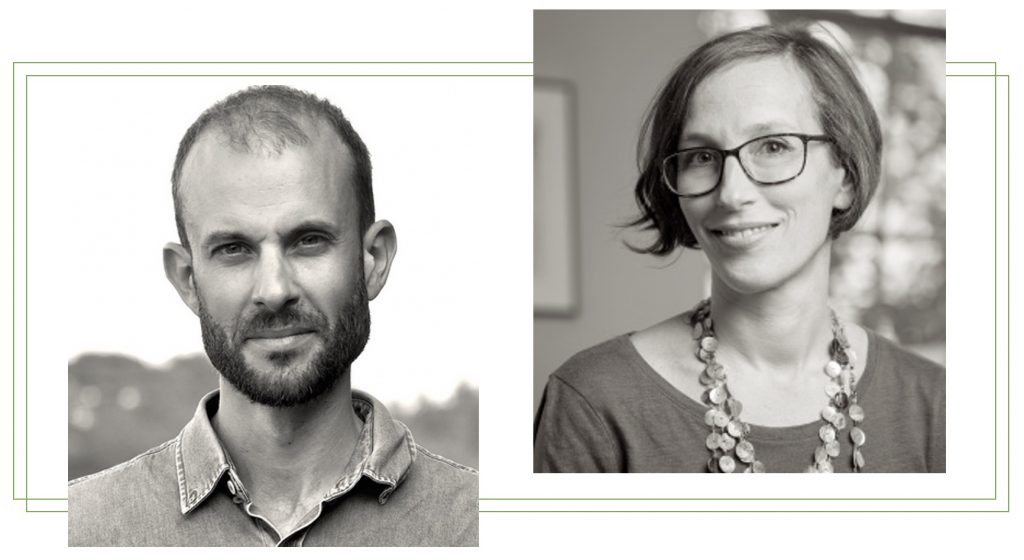Le séminaire « Expertises économiques et actions environnementales » et le Centre Alexandre Koyré (CAK) accueillent
Ian Gray
Postdoctoral Researcher at Columbia University’s Climate School
et Leigh Johnson
Associate Professor, Environmental Studies, Geography, College of Arts and Sciences, University of Oregon
Adaptation au changement climatique
Comment les effets du changement climatique affectent-ils l’économie ? Cette séance, co-organisée avec Sara Angeli Aguiton (Centre Alexandre Koyré – CAK), explorera les formes de connaissance, de travail, et de relations entre sociétés et environnement que l’impératif d’adaptation au changement climatique fait émerger.
Ian Gray (Columbia University’s Climate School) (en visioconférence)
Cultures of Anticipation: Material practices, public authority, and governing water scarcity in the Southwest of France
As climate change begins to alter local ecosystems around the globe, communities and businesses who depend on these ecosystems find themselves renegotiating how climate-compromised natural resources should be protected and distributed, to whom, and at what cost. The Garonne River, in southwestern France, is an example of one such site of renegotiation. Following a state-run participatory planning exercise in 2010-2012, regional stakeholder groups are largely in agreement that climate change seriously challenges current modes of water use. They are not in agreement, however, about what should be done about this. Based on extensive ethnographic fieldwork, this paper uses this example of stakeholder-led adaptation to probe larger questions of what adaptation means in the context of divergent and competing human relationships to the natural world. I pay particular attention to how irrigation-intensive farmers come to articulate the problem of climate change in light of their economic dependencies on water, and develop a set of “anticipatory practices” designed to address moments of increasing water scarcity. Besides anticipating increasing resource constraints, this culture of anticipation, also anticipates political opposition against ongoing modes of export-oriented industrial agricultural by suggesting that farmers are “doing their part” by enhancing more efficient water use. Merging concerns from economic sociology about the regulation of common pool goods with an STS approach to cultures of knowledge, this paper contributes to enlarging understandings of how socio-material practices of adaptation cannot evenly distribute future climate impacts, because actors, even within the same territory, are unevenly affected by these impacts
Leigh Johnson (College of Arts and Sciences, University of Oregon)
Justice and the invisible labor of climate adaptation
Though the politics and burdens of climate change adaptation feature prominently in debates about climate justice, scholars have rarely conceptualized adaptation as work conducted by laboring people. Yet contemporary adaptation programming hinges upon the deployment of a remarkable amount of labor, much of it unpaid, underpaid, or unfree. This talk interrogates the invisibility of this labor force, reading across an archive of adaptation projects funded by multilateral aid agencies in the last decade. Participants manually labor on a wide variety of landscape-level projects of ecological repair and care, performing activities from building irrigation channels, to planting mangrove forests, to invasive species removal, to managing community grazing reserves. I excavate the discursive premises that obscure and devalue participants’ labor: aid as gift; participants’ time as unproductive or surplus; volunteerism as evidence of deservingness; and nature as adaptive agent. From these premises flow problematic assumptions of benefit, participation, contribution, and stewardship, with enormous material consequences for how and by whom labor is performed. In recognition of the structural relation between paid and unpaid work, the gendering of unwaged socioecological reproductive care work, and the legacy of historical ecological debt, I propose a reframing of climate adaptation labor as essential work. This requires jettisoning inherited notions of “donors”, “beneficiaries”, and “aid” itself, reconceptualizing adaptation labor as an opportunity for redistribution and collective world-making

Ian Gray est chercheur postdoctoral à la Climate School de l’Université de Columbia. Il étudie les différentes modalités d’adaptation des communautés, des organisations et des gouvernements au changement climatique. Il s’intéresse particulièrement aux dynamiques politiques qui émergent à mesure que des experts de différents domaines économiques et administratifs font intervenir des connaissances sur les risques climatiques futurs dans la prise de décision, et à la manière dont les politiques et les pratiques qui en résultent façonnent la distribution sociale des impacts climatiques. Dans le projet de livre auquel il travaille actuellement, Making Climate Knowledge Actionable : Adaptation and the Politics of Protection on a Warming Planet, il analyse l’interaction entre la crédibilité des experts, les impératifs économiques, la capacité réglementaire et la contestation sociale dans la construction de pratiques adaptatives.
Leigh Johnson est Professeure associée en études environnementales et géographie au College of Arts and Sciences de Université d’Oregon. Chercheuse en géographie humaine, elle s’intéresse à la convergence entre les risques liés aux catastrophes et ceux liés au climat, à la vulnérabilité, à la finance et au travail. Ses recherches portent sur la manière dont les différentes configurations d’acteurs des secteurs public et privé, ainsi que les modalités de financement, influent sur les moyens de subsistance, la vulnérabilité et le bien-être. Un second élément de son programme de recherche concerne le « travail d’adaptation » au changement climatique : le travail (souvent sous-payé et sous-évalué) de modification et de réparation des systèmes socio-écologiques effectué pour faire avec l’impact des changements climatiques. Elle étudie la manière dont ce travail est organisé, valorisé, distribué et régi par les institutions de développement internationales et les acteurs des ONG. Elle mène également un projet connexe sur la croissance et la dynamique d’approvisionnement en main-d’œuvre des plateformes de financement participatif (crowdfunding) pour la restauration écologique. Un troisième élément de son programme porte sur le travail de lutte contre les feux de forêt dans l’Ouest américain, explorant la manière dont les États occidentaux mobilisent la main-d’œuvre carcérale pour la lutte contre les incendies dans un contexte de régimes d’incendie et de pénurie de main-d’œuvre sans précédent.
Infos et inscription

Date : Vendredi 17 mai 2024, 15h-17h
Lieu : Mines Paris-PSL, 60 boulevard Saint Michel, 75006 Paris. Salle L313
Une transmission par visioconférence / zoom est également prévue. Le lien sera transmis sur inscription juste avant le séminaire.
Le séminaire se tiendra en anglais.
Le séminaire est ouvert à tous. Pour participer au séminaire, merci de vous inscrire ici.
Contact : Béatrice Cointe, Kewan Mertens ou Alexandre Violle
En savoir plus sur les attendus et le programme du séminaire
Photo sources: Ian Gray; Leigh Johnson, College of Arts and Sciences, University of Oregon.

